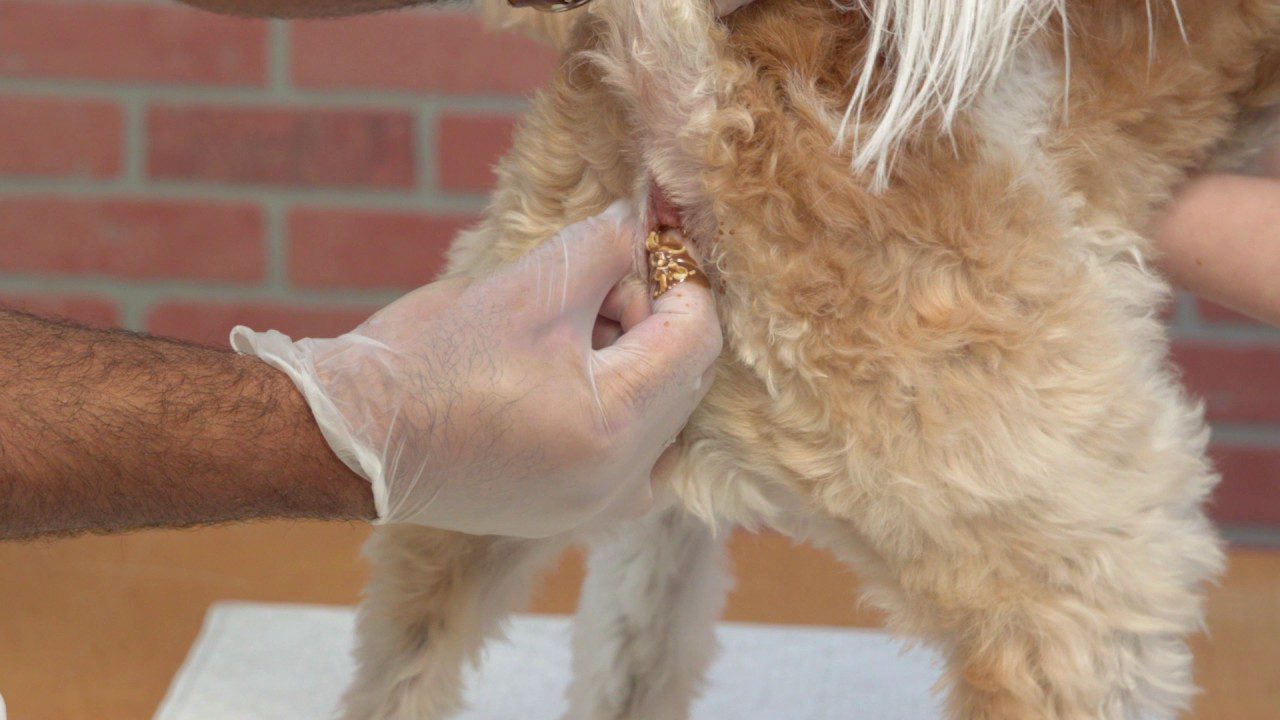Key Takeaways:
- Poor hygiene and lack of grooming can cause a dog to smell bad.
- Ear infections or dental problems can contribute to a foul odor in dogs.
- Diet plays a significant role in a dog's body odor, and certain foods can lead to unpleasant smells.
- Some medical conditions such as skin infections or anal gland issues may be the cause of the bad smell.
- Regular vet check-ups and maintaining good hygiene practices are essential for preventing and addressing bad odors in dogs.
Introduction:
Do you ever find yourself wrinkling your nose in disgust whenever your furry friend comes near? Well, you're not alone! Many dog owners wonder why their beloved pets emit such unpleasant odors. But fear not, because understanding the reasons behind this stinky issue can bring a breath of fresh air into your life – quite literally! By unraveling the mystery of why your dog smells so bad, you'll gain valuable insights that can help improve their overall health and well-being. So, let's dive into this intriguing topic and discover how to keep our four-legged companions smelling as fresh as a daisy!
Word count: 107
Why does my dog have a strong smell?
If your dog has a strong smell, it could be due to several reasons. One common cause is poor hygiene. Dogs need regular baths and grooming to keep their coats clean and odor-free. If your dog is not regularly bathed or brushed, dirt, oils, and bacteria can build up on their skin and fur, leading to a strong smell.
Another possible reason for your dog's strong odor is an underlying health issue. Certain medical conditions like skin infections, ear infections, dental problems, or anal gland issues can cause a foul smell in dogs. It's essential to monitor your dog's overall health and seek veterinary advice if you notice any unusual smells.
Poor Hygiene
Dogs are naturally active animals that love exploring the outdoors. They tend to get dirty easily, especially if they roll around in mud or encounter smelly substances. Regular bathing is necessary to remove dirt and odors from their fur. Additionally, brushing your dog's coat helps distribute natural oils evenly and prevents matting, which can trap odors.
To maintain good hygiene for your dog:
- Bathe them with a mild shampoo suitable for dogs every 4-6 weeks or as recommended by your veterinarian.
- Brush their coat at least once a week to remove loose hair and prevent tangles.
- Clean their ears regularly using a gentle ear cleaner formulated for dogs.
- Trim their nails regularly to prevent dirt buildup underneath.
Underlying Health Issues
If you've maintained proper hygiene for your dog but they still have a strong odor, it might indicate an underlying health problem. Some common health issues that can cause bad smells in dogs include:
- Skin infections: Bacterial or fungal infections can lead to a foul odor. Look for signs of redness, itching, or flakiness on your dog's skin.
- Ear infections: Dogs with ear infections often have a distinct smell coming from their ears. They may also scratch at their ears frequently.
- Dental problems: Poor dental hygiene can result in bad breath and an unpleasant smell. Check for signs of tartar buildup, inflamed gums, or difficulty eating.
- Anal gland issues: Dogs have anal glands that can sometimes become impacted or infected, causing a strong odor around the rear end. If your dog is scooting or excessively licking their bottom, it could indicate anal gland problems.
If you suspect your dog has an underlying health issue causing the strong smell, it's important to consult with a veterinarian. They can diagnose the problem and recommend appropriate treatment to alleviate the odor and address the root cause.
Causes of bad odor in dogs
Dogs can have a variety of causes for their bad odor. One common cause is poor hygiene, such as not bathing regularly or not cleaning their ears and teeth. Bacteria and yeast can build up in these areas, leading to a foul smell. Another cause can be skin infections or allergies. These conditions can cause the skin to become irritated and produce an unpleasant odor. Additionally, certain medical conditions like dental disease, anal gland issues, or gastrointestinal problems can also contribute to a dog's bad smell.
Poor Hygiene
Poor hygiene is one of the main causes of bad odor in dogs. Dogs need regular baths to keep their coat clean and free from dirt and bacteria. Neglecting regular grooming practices can lead to a buildup of oils on the skin, which can produce an unpleasant smell. It's also important to clean your dog's ears and brush their teeth regularly to prevent bacteria and yeast from accumulating.
Skin Infections and Allergies
Dogs with skin infections or allergies may have a distinct odor due to the inflammation and irritation caused by these conditions. Skin infections can be caused by bacteria or yeast overgrowth, while allergies can result from food sensitivities or environmental factors like pollen or dust mites. These conditions often require veterinary treatment to address the underlying cause and alleviate the bad smell.
Medical Conditions
Certain medical conditions can contribute to a dog's bad odor. Dental disease, such as gum infections or tooth decay, can lead to halitosis (bad breath). Anal gland issues, where the glands near the anus become impacted or infected, can also result in a foul smell. Additionally, gastrointestinal problems like stomach ulcers or digestive disorders may cause malodorous gas or feces.
Determining if your dog's smell is normal or a health problem
It can sometimes be challenging to determine whether your dog's smell is normal or indicative of a health problem. As a pet owner, it's essential to pay attention to any changes in your dog's odor and overall well-being. If you notice a sudden and persistent foul smell, it may be a sign of an underlying health issue that requires veterinary attention.
Normal Dog Odor
All dogs have their unique scent, which can vary based on factors like breed, diet, and activity level. A mild "doggy" odor is generally considered normal. However, if the smell becomes unusually strong or unpleasant, it could indicate an underlying problem.
Signs of Health Problems
If your dog's odor is accompanied by other concerning symptoms, it may be an indication of a health problem. Look out for signs such as excessive itching or scratching, redness or inflammation on the skin, hair loss, changes in appetite or behavior, vomiting, diarrhea, or difficulty breathing. These symptoms suggest that there may be an underlying medical condition contributing to the bad smell.
When to Consult a Veterinarian
If you are unsure whether your dog's smell is normal or if you notice any concerning symptoms accompanying the odor, it is best to consult with a veterinarian. They can perform a thorough examination and diagnostic tests to identify any underlying health issues causing the unpleasant smell.
Are certain dog breeds more likely to have a strong smell?
Yes, certain dog breeds are more prone to having a stronger natural odor compared to others. This variation in scent can be attributed to several factors such as skin type, coat density, and oil production.
Breeds with Oily Skin
Some dog breeds have naturally oily skin, which can contribute to a stronger odor. Breeds like Basset Hounds, Bloodhounds, and Shar-Peis have more sebaceous glands in their skin, leading to increased oil production. This oil can mix with bacteria and dirt on the skin's surface, resulting in a distinct smell.
Dense Coats
Dogs with dense or double coats, such as Saint Bernards, Newfoundlands, or Huskies, may have a stronger odor due to the difficulty of air circulation through their fur. The trapped air and moisture can create an environment conducive to bacterial growth and odor development.
Ear Shape and Size
The shape and size of a dog's ears can also influence their scent. Dogs with floppy or long ears, like Cocker Spaniels or Basset Hounds, are more prone to ear infections due to reduced airflow. These infections can cause a foul smell emanating from the ears.
Common reasons for a dog's bad breath and how to improve it
Bad breath in dogs is often caused by dental issues or poor oral hygiene. Addressing these problems can help improve your dog's breath and overall oral health.
Dental Disease
The most common cause of bad breath in dogs is dental disease. Plaque and tartar build-up on the teeth can lead to gum inflammation (gingivitis) and infection (periodontitis). These conditions release foul-smelling gases that contribute to bad breath. Regular brushing of your dog's teeth using pet-safe toothpaste and providing appropriate chew toys can help prevent dental disease.
Poor Oral Hygiene
If you neglect your dog's oral hygiene, bacteria can accumulate in their mouth, causing bad breath. It's essential to establish a routine of brushing your dog's teeth and gums regularly. Additionally, consider providing dental treats or toys designed to promote oral health.
Other Causes
In some cases, bad breath may be a symptom of an underlying health issue such as gastrointestinal problems or kidney disease. If your dog's breath does not improve with proper dental care, it is advisable to consult with a veterinarian for further evaluation.
Reducing your dog's unpleasant smell through regular grooming and hygiene practices
Maintaining regular grooming and hygiene practices can significantly reduce your dog's unpleasant smell. Here are some tips to keep your furry friend smelling fresh:
Bathing
Regular bathing using a mild dog shampoo helps remove dirt, oils, and odors from your dog's coat. However, excessive bathing can strip away natural oils and lead to dry skin. Aim for bathing once every 1-3 months or as recommended by your veterinarian.
Ears and Teeth Cleaning
Clean your dog's ears regularly using a veterinarian-approved ear cleaner to prevent the buildup of wax and debris that can cause odor. Brushing your dog's teeth with pet-safe toothpaste helps maintain good oral hygiene and reduces the risk of dental disease-related bad breath.
Grooming Specific Areas
Pay attention to specific areas prone to odor accumulation, such as the anal region. Regularly check and clean the anal glands if necessary, as impacted glands can emit a strong smell. Additionally, trimming hair around the genital area can help prevent urine or fecal matter from sticking to the fur.
Dietary Considerations
A balanced diet plays a vital role in your dog's overall health and odor control. Ensure your dog is eating high-quality, nutritionally balanced food that meets their specific dietary needs. Avoid feeding them table scraps or foods that may cause digestive issues or contribute to bad breath.
By following these grooming and hygiene practices, you can help keep your dog smelling fresh and minimize any unpleasant odors.
In conclusion, there are several reasons why your dog may smell bad. It could be due to poor hygiene, skin infections, or diet. Regular grooming and a healthy diet can help keep your furry friend smelling fresh and clean.
Why does my dog stink so bad even after a bath?
The most frequent medical causes of dogs having a bad smell are secondary yeast or bacterial infections on the skin or in the ears. Allergies in dogs often initiate the problem, leading to scratching and licking, behaviors that create opportunities for infections.
Why does my dog smell unusually bad?
Various factors such as allergies, hormonal imbalances, fungus, parasites, and localized inflammation can result in an excessive growth of yeast or bacteria on the skin, leading to an unpleasant odor. This discomfort experienced by your dog can cause them to scratch and lick excessively, which in turn can lead to a secondary bacterial infection.
How often should dogs be bathed?
Most healthy dogs should be bathed every one to three months in order to reduce odor and buildup of oil, although this frequency may vary depending on certain factors. For example, dogs with oily coats, such as Retrievers, may require a bath every few weeks to control odor. Additionally, daily brushing can help remove hair and distribute oils.
Why does my dog smell sour?
The smell of a skin infection is typically stronger and more unpleasant than the typical scent of a wet dog. It is often sour and offensive in nature. A sour odor may indicate the presence of a skin infection. Examine the fur closely to check for any bumps, sores, boils, or rashes, which can appear anywhere on the skin.
What does seborrhea smell like on dogs?
If a dog has seborrhea oleosa, a type of seborrhea characterized by oily skin, it may have a strong odor of oil or grease. Dogs with seborrhea are at a higher risk of developing secondary skin infections, which can further intensify the smell associated with canine seborrhea.
What does a yeast infection smell like on a dog?
Dog owners have described the smell as resembling a musty or cheesy scent. Hair loss can occur around the ears as a result of yeast infections in the ear, which are often accompanied by inflammation.
















